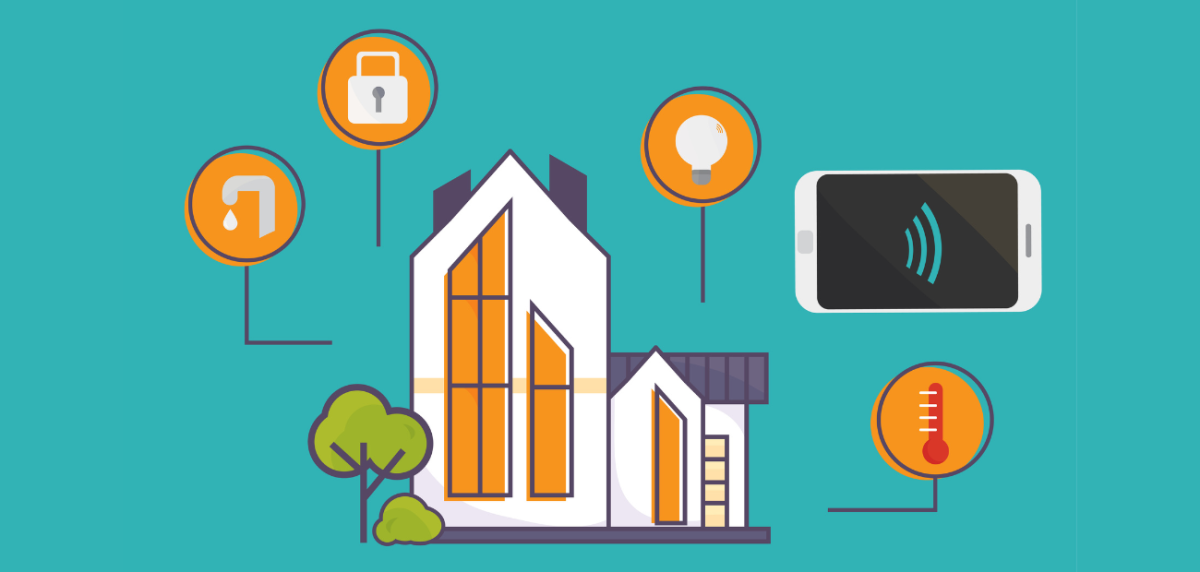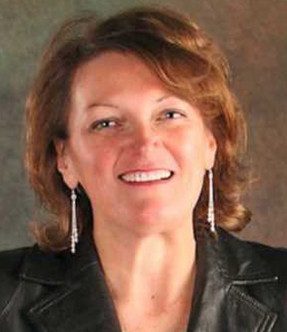For 15 years, Lindsay Hall worked in corporate technology sales and marketing before making a shift to a career in real estate. When the pandemic hit and the industry stalled, she decided to use the time to earn her Smart Home Certification.
“I was just wondering what was out there that I can take, so I chose something in my background and made it relevant to real estate,” says Hall, co-founder of Ink Properties in Greenville, S.C. “A smart home can simplify and make your life better.”
Through her certification and continuing research, she tells home buyers and sellers how simple tech installs added to their properties can qualify them as smart homes.
The Lowdown on the Smart Home Certification
The Smart Home certification was launched to help real estate professionals become experts in a growing trend in the housing industry—technologically advanced homes. The 12-hour certification equips practitioners with the information they need on smart home technology, its economic and environmental impact and more. It cost $125.
About 740 agents across the nation initiated the Smart Home certification since its inception. Yet, only 358—about 47% of those who started the class—have completed the certification, according to the Residential Real Estate Council, formerly the Council of Residential Specialists (CRS).
“Many times, I hear more often than not real estate professionals tell me they are so glad they signed up for the class even though they weren’t sure about technology,” says Kim Cameron, CRS, instructor of the smart home certification in many states. She is broker associate at the Kim Cameron Group at Better Homes & Garden Real Estate Preferred Properties in St. Louis.
She notes that smart home features are becoming more mainstream every day. With builders and rehabbers, smart homes have become mainstream.
“They are putting in temperature and light controls so you can do everything from your phone. Blinds are being automated. Security systems are becoming easier and less expensive, and everything is as easy as a push of a button.”
She breaks down the course into segments so any practitioner can wrap their head around it.
“For a decade, many homes have had a Nest camera doorbell. But we never had the dialogue to talk to them at a listing meeting about being a smart home,” she comments. “And only a handful of MLSs have a button to click to say that a home is a smart home.”
A smart home, according to the course, is a home equipped with network-connected products that connect via Wi-Fi, Bluetooth or similar protocols. The protocols control and automate several home functions like lighting, security and temperature. Homeowners can customize and control the features, typically from an app or computer. To be considered a true smart home on the market, a home must have an internet connection and either a security or temperature control device, plus at least two additional smart home features.
How the Certification Enhances Business
Cameron believes that adding the words “Smart Home” to real estate signs, social media pages and websites garners attention that agents might not otherwise receive. People who are tech savvy or environmentally conscious will gravitate to someone with the certification. General curiosity could play a role as well. Whatever the case, agents should make sure their potential customers understand the value of the certification, Cameron says.
She has a script that she teaches to her students, which goes over how to talk with potential clients about a smart home. Confidence and knowledge are important when relaying information, she says.
Having the certification distinguishes a real estate professional as an expert in a growing niche. Those earning the certificate can tap into pre-made toolkits available to help promote themselves, and getting the certificate earns credit toward the CRS designation.
Help a Home Be a Smart One
For Cameron, the process of determining a smart home starts in the driveway.
“You see the camera doorbell right away. You start telling the clients that you noticed they have a NEST doorbell,” she says. “You explain to them that they have a smart home or could have a smart home with a few tweaks, and (you also tell them) how they can use that as an advantage when (listing) their home.”
Hall notices that the larger the home, the more automation possibility.
“I don’t lead into the smart home talk with money savings,” she says. “I go for the overall picture. It does cost money for the smart home technology, but not as much as some people think.”
Hall believes in talking with clients about smart home features that make sense for them based on their needs. Blinds, for instance, might be a hefty expense, but if a client wants them, there are ways to cut down on the cost.
“We don’t advise to put them in every window,” Hall states. “I try and talk with them about how long they will be living there. Most people want a smart home, but most people don’t call it that.”
The certification means that real estate professionals understand the full breadth of what makes a home a smart home, and relaying this information to clients is invaluable. Technologies like appliances, entertainment, and automated vacuums, for instance, might not be on their radar.
“There’s an infinite number of scenarios that you can help your client with,” she says.




